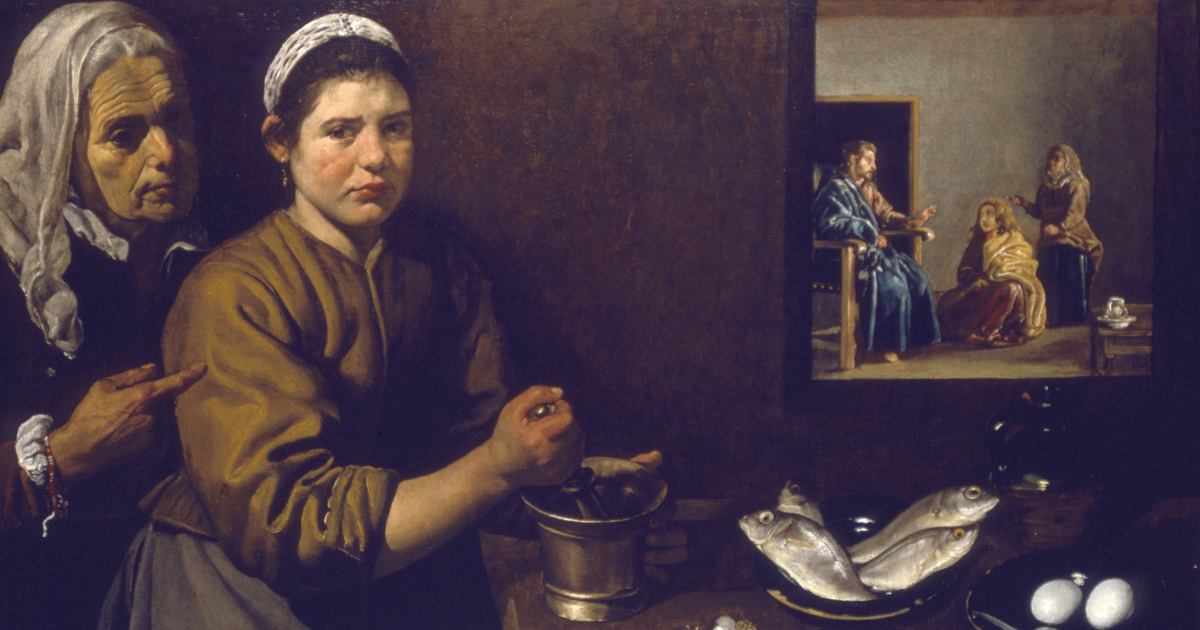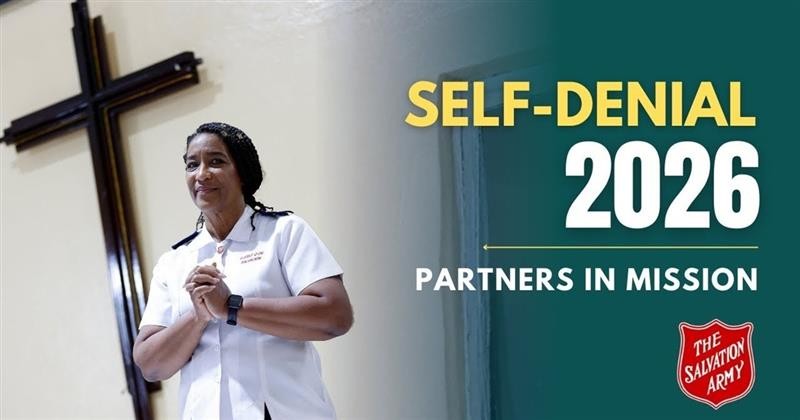Thanksgiving is a treasured time of year. It invites us to pause and reflect on God’s presence and goodness in our lives while providing an opportunity to celebrate family and community. Invitations are sent, recipes are researched and Pinterest is consulted to find creative ways to set the table—all in an effort to make memorable moments.
One of the challenges hosts face is to create a scrumptious meal while being fully present to those gathered at the table. If we are not careful, all our preparations can distract us from the reason we gathered: fellowship.
This challenge is not new. Nestled in the Gospel of Luke (see Luke 10:38-42) is a meal that has gone awry. On the surface, Martha appears to be doing all the right things. She has opened her home in hospitality and is preparing a meal for Jesus and his journey companions, but she is distracted. At the same time, Mary is breaking all social norms by sitting and listening to Jesus teach. Martha becomes exasperated and asks Jesus to sort Mary out. In answer to Martha’s protest, Jesus explains that Mary has chosen the better part. Mary is not caught up in the lure of many tasks; she is simply enjoying being with Jesus.
This story serves as a great reminder as we prepare Thanksgiving meals. However, it serves as a caution for all of us who get caught up in busyness and miss opportunities to enjoy the presence of Jesus. Our busyness might seem productive but could be what Ignatius of Loyola described as a false consolation: something that appears to be good on the surface, but ultimately draws us away from the presence of God. In the case of Martha, her false consolation is tending to many duties to provide a wonderful meal for Jesus.
Discernment is a gift that God gives to us, a fruit that God grows in us, that enables us to be aware of God’s presence and make choices that draw us closer to God. This story of the Bethany sisters provides an example of a sister who discerns well (Mary) and a sister whose good intentions cause her to focus on what she thinks people expect of her (Martha). In his commentary on Luke, American biblical scholar R. Alan Culpepper describes how “like demons, her cares about fulfilling her duties have thrown her life into disorder. Like thorns, they have prevented her from attending to Jesus’ teaching.”
Discernment is a word that is sometimes used too freely in Christian circles. People talk about having the gift of discernment as a way to justify not liking something or someone. Others use the word as a way to avoid saying “no.” Some believe that whatever brings the most money and success must be God’s will, while others believe that God’s will must involve self-sacrifice. However, discernment is more than just getting answers to questions. It is a way of life that sees and hears things from God’s perspective. It involves creating the space to slow down and listen for God’s “still small voice of calm,” sometimes amid “the earthquake, wind and fire” (SASB 456).
As we spend time with God, discernment grows in us an understanding of life from God’s perspective. It provides a way to look at life from a healthy, detached vantage point, while also intuitively sensing God’s will. Discernment helps us not get overwhelmed by life’s circumstances and breaks patterns of overthinking. It helps us let go of how we think something should be and opens us up to curiously question how God wants them to be. Discernment helps us move beyond one way or the other thinking and invites us to patiently wait for God to reveal God’s will. It invites us to explore beyond “what should I do?” to uncover “who should I be?”
Discernment, therefore, is more than making decisions. It is a way of living with an open posture toward God that enables us to move closer and deeper in our relationship with God.
This Thanksgiving, as we pause to say thank you for God’s activity, let us take some moments to reflect on how God has been present and seek forgiveness when our ways have been foolish. With simple trust, let us experience “the silence of eternity, interpreted by love” (SASB 456).
Major Corinne Cameron is the assistant training principal at the College for Officer Training in Winnipeg.
Photo: Painting by Diego Velazquez/PHOTOS.com via Getty Images Plus










Really enjoyed this article. The story of Mary and Martha has bothered me for some time. Martha doing all the work and Mary sitting back and enjoying life. Discernment. Most of us need more of that.